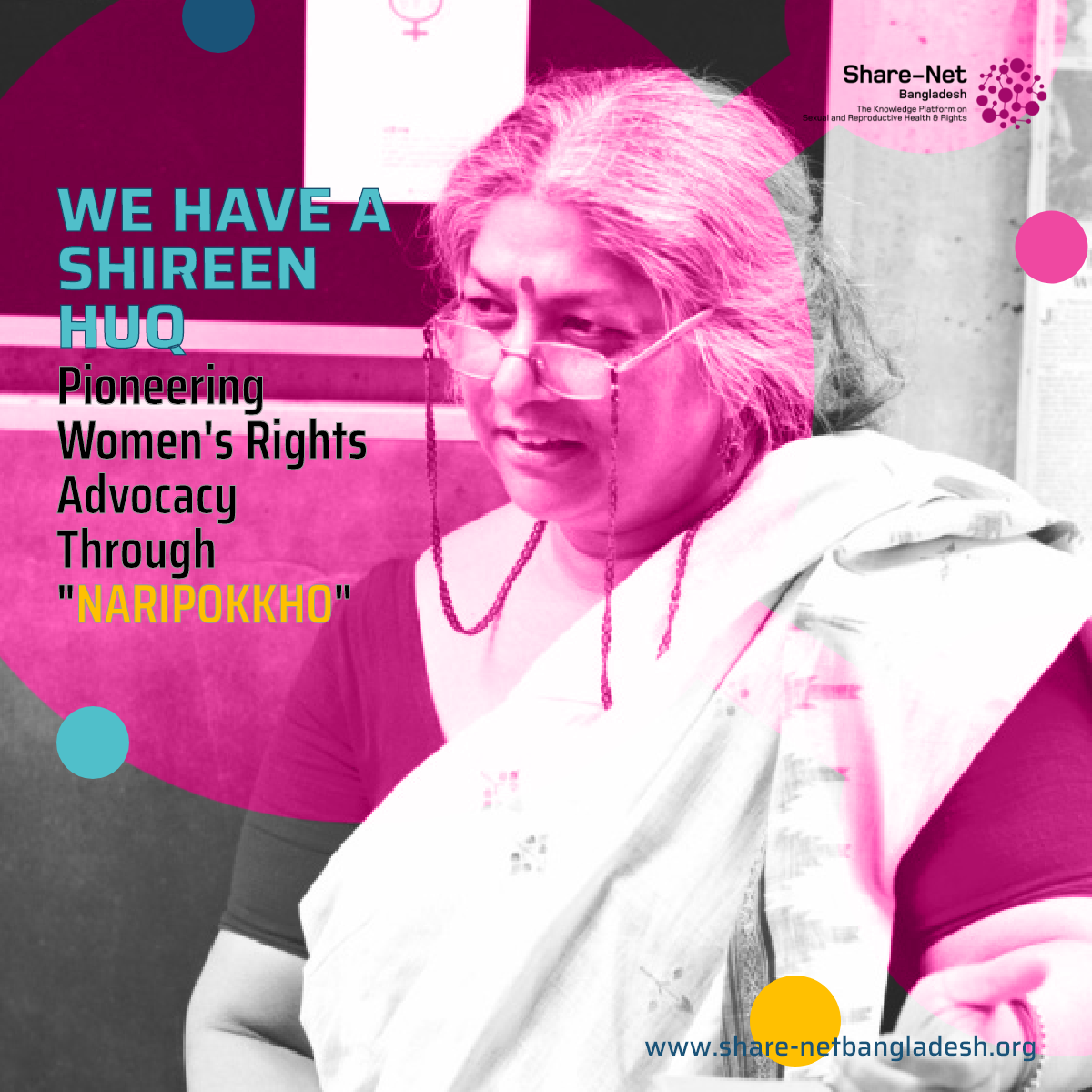We have a Shireen Huq: Pioneering Women’s Rights Advocacy through Naripokkho
For over 40 years, Ms. Shireen Pervin Huq and the feminist organisation she co-founded, Naripokkho, have been at the forefront of Bangladesh’s fight for gender equality. From challenging systemic gender-based violence (GBV) to advocating for sexual and reproductive health and rights (SRHR), Shireen’s work has reshaped how women’s rights are discussed and fought for in the country.
“Women Resist!” – A Radical Beginning
Founded in 1983, Naripokkho emerged during a period when feminism was struggling to find its place in Bangladesh’s newly independent political landscape. “We had no idea of the intensity of the sense of injustice that lay beneath the surface, ready to explode,” Shireen recalled about the early days when women first began gathering to talk. The organisation faced resistance from mainstream women’s movements for its bold messaging and unapologetic stance.
When invited to join a broader anti-violence campaign in 1984-85, Naripokkho insisted on framing violence against women not as a law-and-order issue but as a consequence of systemic discrimination. Their slogan, “Women Resist!”, was labeled “too belligerent” by conventional activists, who urged a more deferential approach. “They felt we were too radical, too cheeky, and that we were young and should be more deferential,” Shireen said.
“My Body, My Decision” – Challenging Reproductive Rights Abuses
One of Naripokkho’s groundbreaking campaigns was in response to coercive population control measures in the late 1980s. Women were pressured into sterilisation and unsafe contraceptive use, with health workers incentivised to meet quotas. Naripokkho’s response was a call for safe contraception and women’s autonomy, encapsulated in their iconic slogan, “My Body, My Decision.” This stirred significant controversy. “It caused a lot of flurry, with journalists asking, ‘Do you mean free sex?’” Shireen recounted, highlighting the cultural resistance to women asserting control over their own bodies.
Progress Amidst Challenges
Naripokkho’s advocacy has led to significant progress. Acid attacks, a horrifying form of GBV used to punish women defying societal norms, have shown a downward trend due to sustained campaigns. However, challenges persist. “It appears that rape and gang rape have increased,” Shireen observed. “It makes one wonder: all this work, all these campaigns, and all this awareness raising – has it made any dent at all?”
The organisation’s strength has always been in its ability to mobilise. For 10 years, Naripokkho maintained a national network that could respond to egregious acts of violence with protests across the country within 48 hours. “You have to be a loud national voice if you’re ever to get anything done,” Shireen emphasised.
“The Battleground Has Shifted” – A New Era of Activism
Today, Naripokkho focuses on broader issues, including freedom of expression and secularism, while continuing its work on SRHR and GBV. Shireen noted the generational shift in activism, with young women focusing more on digital platforms than on-the-ground protests. “Maybe the battleground has shifted from the street to the computer,” she reflected.
The recent appointment of Shireen Huq as the head of Bangladesh’s newly formed reform commission on women’s affairs is a monumental step for the country’s feminist and people’s health movements. This recognition of her contributions marks a pivotal moment in the fight for women’s rights in Bangladesh, offering renewed hope for meaningful reforms that advance equality, justice, and dignity for all.
Shireen Huq’s journey reminds us of the relentless effort needed to achieve gender equality. As she wisely remarked, “We take a position, make a lot of noise, and hope that others will be influenced in some way.”
Source: Noble Women’s Initiative


